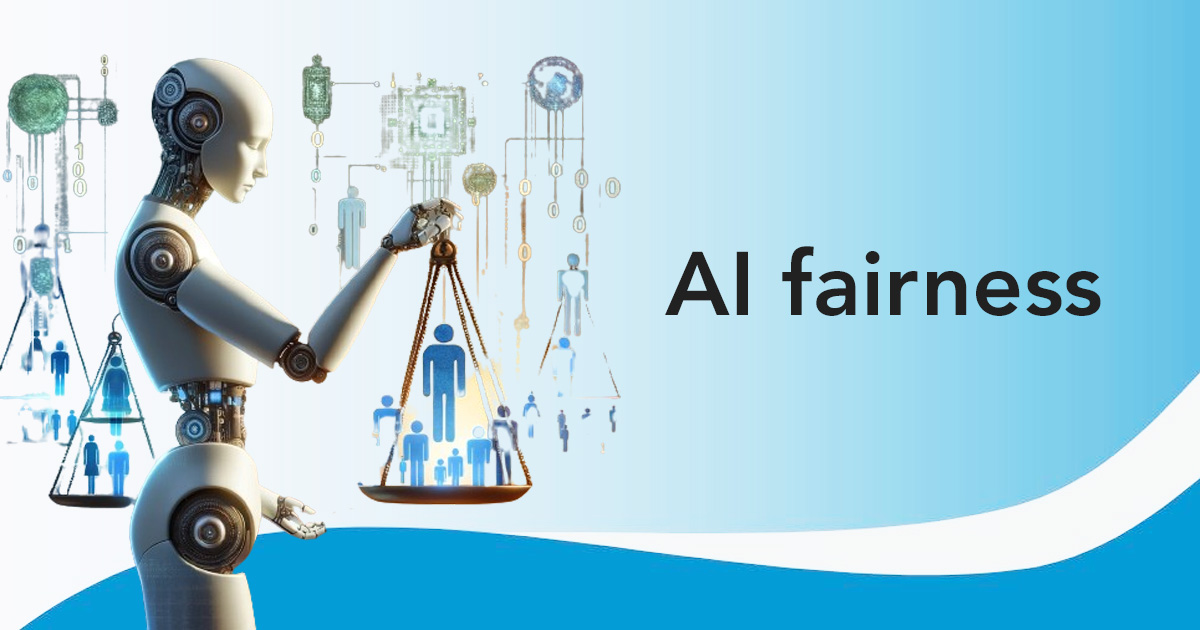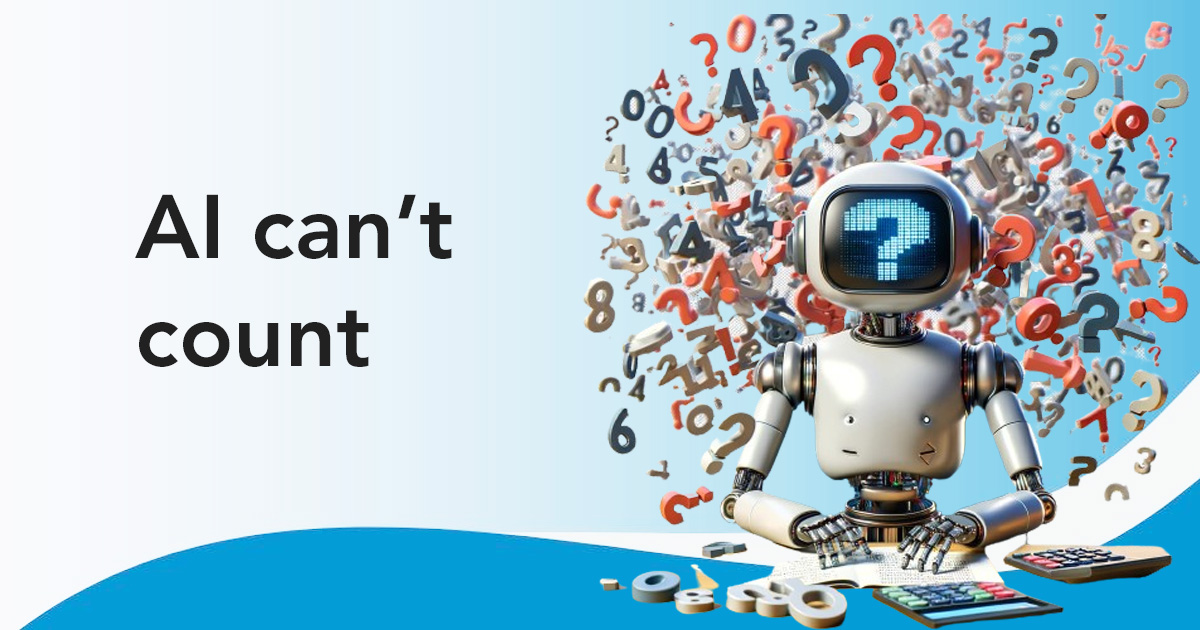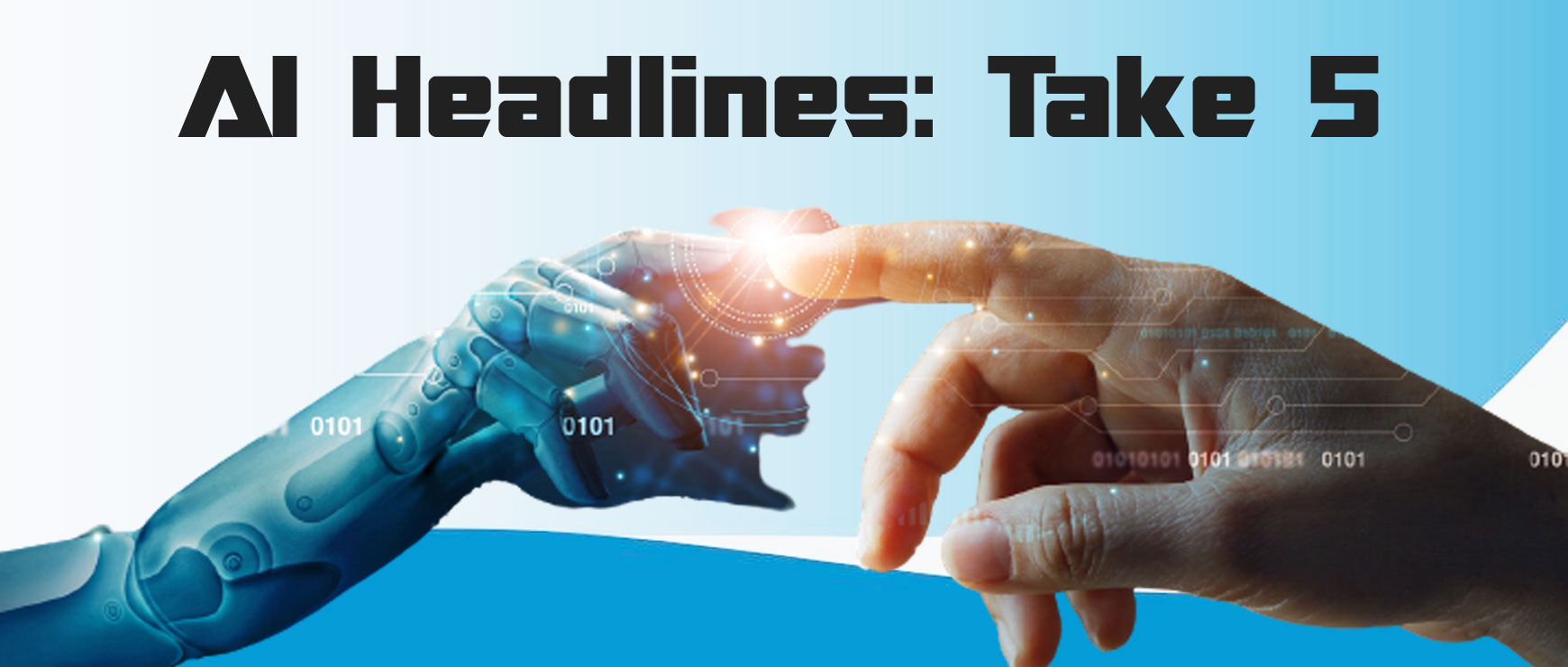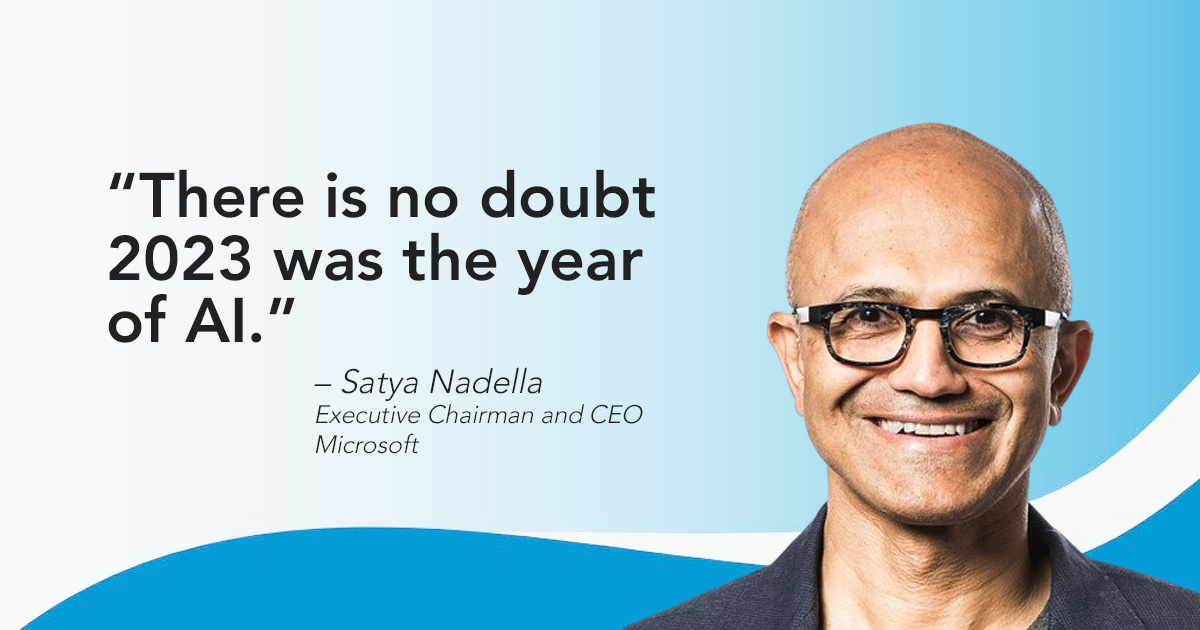Real AI: AI fairness is a huge hurdle, AI can’t count, fast facts, top headlines and Quote of the Week
By Kevin Hawkins with Korey Hawkins | Vol. 1 Post 18
Real AI is a 100% human-created weekly roundup of all things AI in real estate and emerging AI innovations in other sectors likely to impact real estate, posting a new edition every Friday.
Of all the obstacles AI faces to continue its rocket-speed integration into our lives, the largest one it will need to overcome is fairness. In 2023, “responsible AI” became a buzzword we advised clients early on to embrace. In 2024, we will be adding another word – responsible and fair AI.
As the Harvard Business Review noted in September, “…it has become increasingly apparent that the promises of AI aren’t distributed equally — it risks exacerbating social and economic disparities, particularly across demographic characteristics such as race.”
Last week, Axios, perhaps America’s leading AI news source, published “1 big thing: AI inequality trap for Black Americans.” This headline is indicative of more to come on this subject as research from McKinsey shows. Trust us, this is only the beginning.
In its report, “The economic potential of generative AI: The next productivity frontier,” McKinsey warned that Generative AI “has the potential to widen the racial economic gap in the United States by $43 billion each year,” and in particular, widen the economic divide between White and Black households.
That chasm is already massive: a report from the Federal Reserve notes the median wealth – total assets – for a Black household is $44,900 and $285,000 for a White household.
The AI-generated problem: job losses.
The McKinsey Report projects that AI is poised to eliminate, through automation, as much as half of all jobs that don’t require a college degree and pay less than $42,000 a year (what they use as wealth threshold).
The result is a major disparate impact on Blacks.
Workers who are most at risk – those working in office support, production, and food services – are Blacks because they comprise a significant majority in these jobs.
AI is already struggling with algorithmic bias because what it knows is what we have taught it and we have systemic biases that AI has also learned.
The Harvard Business Review story notes:
“Algorithmic bias occurs when algorithms make decisions that systematically disadvantage certain groups of people. It can have disastrous consequences when applied to key areas such as healthcare, criminal justice, and credit scoring. Scientists investigating a widely used healthcare algorithm found that it severely underestimated the needs of Black patients, leading to significantly less care. This is not just unfair, but profoundly harmful.”
The McKinsey report may be more impactful as it illustrates a potentially devastating concrete example: taking away jobs from Blacks.
This subject is vital for every industry – real estate in particular – to pay attention to as this topic could emerge as the greatest risk for AI. Fairness is a hurdle that could impede AI adoption and its advancement – and for the right reasons.
McKinsey does address this head-on, but this part is less likely to garner the headlines, as it notes:
“But deployed thoughtfully, it (AI) could actually remove barriers to Black economic mobility.”
Somehow, I don’t think that part of the study will get as much attention, but that is the right path forward.
AI just might need AI to solve this quandary.
AI lies. You can call it “hallucinations” or anything else, but the bottom line is Generative AI can give you the most convincing answers, only to be utterly false.
Last week, we wrote about one valuable way an agent can use AI to crunch and analyze their most engaged newsletter subscribers. Things were going great until ChatGPT-4 spewed out a dataset that was more than 10x higher than it should be. Thankfully, it was easy to catch. We told ChatGPT that the numbers were wrong: without apology, it fixed it, outputting the correct dataset.
When we asked it to provide in our prompts, links and sources to the research it was citing, the links were either dead or did not point to the correct place. Googling and Binging independently for the study revealed the data was completely fabricated.
Try this: attach a specific number count requirement to any prompt requesting content in Claude.ai or ChatGPT-4. Ask for, say, a minimum of 500 words. You will likely get an output that begins with something like “Here is a 477-word draft…” Okay, not quite 500 words, but when you do an actual word count, you find the correct count is just north of 350 words!
So, we tested this and found, again and again, the word count was never correct – ever. With an 800-word minimum requirement, even though AI will tell you it provided a “731-word version,” the word count is actually just over 580 words.
Recently, ChatGPT-4 has been improving, but still, you need to pay close attention to every piece of content you ask for AI to assist in creating, especially facts and figures.
As I told a client earlier this week, when you use AI, know that it makes mistakes, so you must Reaganize it: trust but verify.
- According to McKinsey, about 69% of data processing tasks can be automated by AI, helping businesses increase their efficiency and productivity.
- Research shows that 8.4 billion AI-powered digital voice assistant units will be active in the world by 2024, eclipsing the total global population.
- A report by Outgrow highlights the top 5 industries that benefit from AI Chatbots, which are Real Estate (28%), Travel (16%), Education (14%), Healthcare (10%), and Finance (5%).
- In a survey for Senior Executives, 69% of them consider AI “crucial” in responding to cybersecurity.
- When interviewed, around 62% of consumers stated they are willing to submit data to AI to improve their experience.
Source: Various collected by Techdogs.
AI Headlines Take 5
- How Artificial Intelligence Can Help Streamline Property Transactions in 2024 | Newswatch 12/18/23
A take on how AI potentially can be used throughout real estate transactions to improve accuracy and speed. - Movers: AI selects Brendan Brown as future top agent at Official | The Real Deal 12/18/23
Official, a boutique brokerage in the LA area, is using an AI mentoring program to evaluate the potential for agents to be top producers. - How AI can help hiring managers recruit top talent | Business Insider 12/20/23
AI is being used to evaluate the resumes and skills of candidates at a quicker pace, but bias remains a concern. - How AI is Revolutionizing the Real Estate Market | Yahoo! 12/20/23
Covers how AI is being used in the short-term rental space of real estate. - Sure, artificial intelligence can provide real-time data on demand, but can it really replace Realtors? | Redwood City Pulse 12/18/23
A pragmatic view on what a human agent can do that AI can’t.
Quote of the Week – Microsoft’s Nadella
Subscribe to our free Real AI newsletter here.
Content suggestions welcomed: email korey@wavgroup.com.









